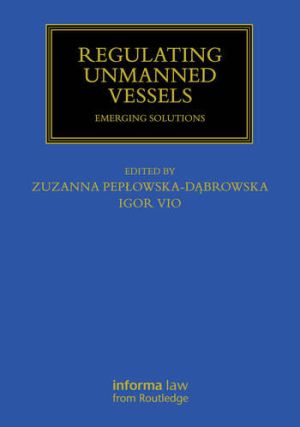
While the technology on crewless ships (Maritime Autonomous Surface Ships, MASS) develops rapidly, the legal framework requires revisions to accommodate this new phenomenon. Although there is a broad understanding that there are no substantial barriers to the operation of MASS in legal terms, there is a need for a thorough revision process to provide for a proper regulatory framework. Future regulation should be based on several principles, including protecting the rights of victims of MASS operations and preserving the maritime environment, but, on the other hand, it should not hinder the development of technology and new industries. This book proposes regulatory solutions to the problems arising from MASS operations, carefully balancing the interests of many, at times new, parties involved.
Consisting of four parts, the book opens with chapters describing the most recent developments at the forums of international organizations. The second part contains chapters that elaborate on specific issues arising from work done at international organizations, providing some solutions to emerging questions, including topics of the UNCLOS genuine link requirement for the Remote Operations Centres (ROCs), security issues, master of the MASS and environmental aspects. The third part concerns liability and insurance issues. The fourth part gathers chapters that comment upon different issues related to Artificial Intelligence (AI) in control of the MASS.
This book is written for policy makers on different levels (international and national), national maritime administrations, practitioners in maritime law, insurers of maritime risks, maritime legal scholars, artificial intelligence scholars, and advanced students of maritime law courses.